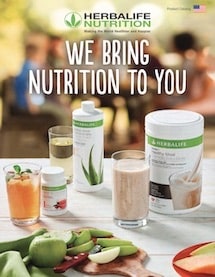The Role of Protein in Nutrition
Protein is a fundamental macronutrient that plays a critical role in the health and function of the human body. Understanding its importance is key for anyone, especially vegetarians, who may need to be more mindful of their protein intake.
Understanding Protein and Its Functions
Protein consists of amino acids, which are often referred to as the building blocks of life. These molecules are crucial for the repair and growth of tissues, including muscles, skin, and organs. Furthermore, proteins participate in various biochemical functions such as:
- Enzyme production: Proteins help create enzymes that catalyze biochemical reactions.
- Hormone regulation: Some hormones, which are essential for bodily functions, are proteins in nature.
- Immune response: Antibodies, which are made of protein, help the body to identify and neutralize pathogens.
Given its numerous roles, protein is essential for maintaining overall health and well-being.
Why Protein Is Crucial for Weight Management
Protein’s role in weight management is significant due to its impact on satiety and metabolism. Incorporating sufficient protein into one’s diet can lead to feelings of fullness, which in turn may reduce overall calorie intake. This satiating macronutrient also has a higher thermic effect than fats or carbohydrates, meaning that the body uses more energy to digest and metabolize proteins. This increased energy expenditure can contribute to weight loss and management.
Studies have shown that diets with a higher proportion of protein can lead to greater weight loss and maintenance outcomes:
| Diet Type | Protein Intake (%) | Weight Loss Outcome |
|---|---|---|
| High-Protein Diet | 25-30 | Higher weight loss |
| Standard Protein Diet | 15-20 | Moderate weight loss |
| Low-Protein Diet | <15 | Lower weight loss |
For vegetarians, finding the best protein sources is crucial to maintaining a balanced diet and achieving weight management goals. It’s important to focus on high-quality protein sources that provide all essential amino acids and support a healthy lifestyle.
The Vegetarian Diet and Protein
Protein, an essential macronutrient in any diet, plays a multitude of roles in the body, from building and repairing tissues to making enzymes and hormones. When it comes to vegetarian diets, there are several misconceptions about the ability to meet protein needs. This section aims to dispel common myths and highlight the importance of understanding protein variety for vegetarians.
Debunking Myths About Protein and Vegetarianism
One common myth is that vegetarian diets cannot provide enough protein. However, a well-planned vegetarian diet can meet the protein requirements of individuals at all stages of life. Another myth is that plant-based proteins are inferior to their animal-based counterparts. While it is true that some plant proteins may be lower in certain essential amino acids, this does not mean they cannot contribute to a balanced protein intake.
| Myth | Fact |
|---|---|
| Vegetarians can’t get enough protein. | A variety of plant-based proteins can meet daily protein needs. |
| Plant-based proteins are incomplete. | Many plant-based proteins are complete, and incomplete proteins can be combined to provide all essential amino acids. |
| Only animal proteins are high-quality. | Plant-based proteins can also be high-quality if a variety of sources are included in the diet. |
The Importance of Complete and Incomplete Proteins
Proteins are made up of amino acids, some of which the body cannot synthesize and must be obtained from the diet. These are known as essential amino acids. A complete protein contains all of the essential amino acids in adequate amounts, while an incomplete protein is low in one or more of these amino acids.
Most animal proteins are complete, but many plant-based protein sources are not. This is not a concern for vegetarians as long as a variety of foods is consumed. Different plant proteins can be combined to create a complete amino acid profile. For example, legumes are often low in methionine but high in lysine, while grains are the opposite. Eating both in a day can provide a balance of essential amino acids.
| Plant Protein Source | Low in Essential Amino Acid(s) | High in Essential Amino Acid(s) |
|---|---|---|
| Legumes (beans, lentils) | Methionine | Lysine |
| Grains (rice, wheat) | Lysine | Methionine |
| Nuts and Seeds | Lysine | Sulfur-containing amino acids |
Understanding the concept of complete and incomplete proteins is crucial for vegetarians to ensure they are getting all the essential nutrients their bodies require. By incorporating a diverse range of protein sources, vegetarians can enjoy a nutritious diet that supports overall health and well-being.
High-Quality Protein Sources for Vegetarians
For vegetarians, finding rich sources of protein is critical to ensure a balanced diet. Various plant-based foods, as well as certain animal products, offer ample protein to support bodily functions and muscle maintenance.
Legumes: A Powerhouse of Plant Protein
Legumes, which include beans, lentils, chickpeas, and peas, are a cornerstone of vegetarian nutrition, offering a substantial amount of protein per serving. They are also a great source of fiber and complex carbohydrates, contributing to a feeling of fullness and sustained energy.
| Legume Type | Protein (g per cup cooked) |
|---|---|
| Lentils | 18 |
| Chickpeas | 15 |
| Black Beans | 15 |
| Kidney Beans | 13 |
Grains: More Than Just Carbs
Grains are often recognized for their carbohydrate content, but many also provide a good dose of protein. Whole grains, in particular, should be a staple in a vegetarian diet, not only for their protein but also for their fiber and micronutrients.
| Grain Type | Protein (g per cup cooked) |
|---|---|
| Quinoa | 8 |
| Brown Rice | 5 |
| Buckwheat | 6 |
| Barley | 3.5 |
Nuts and Seeds: Nutrient-Dense Protein Snacks
Nuts and seeds are not only a quick protein snack but also a source of healthy fats and vitamins. They can be eaten alone or added to dishes such as salads, yogurts, and smoothies for an extra protein boost.
| Nut/Seed Type | Protein (g per ounce) |
|---|---|
| Almonds | 6 |
| Sunflower Seeds | 5.5 |
| Chia Seeds | 4.7 |
| Pumpkin Seeds | 7 |
Dairy and Eggs: Vegetarian-Friendly Animal Proteins
For lacto-ovo vegetarians, dairy products and eggs are excellent sources of high-quality protein. These foods contain all essential amino acids and can greatly contribute to meeting daily protein needs.
| Dairy/Egg Product | Protein (g) |
|---|---|
| 1 large egg | 6 |
| Greek Yogurt (1 cup) | 17-20 |
| Cottage Cheese (1 cup) | 28 |
| Milk (1 cup) | 8 |
Soy Products: Versatile and Protein-Rich
Soy products, such as tofu, tempeh, and edamame, are among the richest protein sources for vegetarians. They are not only versatile in recipes but also contain all nine essential amino acids, making them a complete protein.
| Soy Product | Protein (g per serving) |
|---|---|
| Tofu (1/2 cup) | 10 |
| Tempeh (1 cup) | 31 |
| Edamame (1 cup) | 17 |
| Soy Milk (1 cup) | 7-9 |
Incorporating a variety of these protein sources can help vegetarians ensure they are consuming enough protein to meet their nutritional needs. It’s also important to consume a mix of different foods to benefit from a range of nutrients that support overall health.
Combining Plant Proteins
Combining various plant proteins is a vital strategy for vegetarians to ensure they receive all essential amino acids, which are the building blocks of protein not naturally produced by the body.
Complementary Proteins and How to Combine Them
Complementary proteins refer to two or more plant-based protein sources that, when eaten together, provide all the essential amino acids needed for a complete protein profile. It’s a common misconception that these need to be eaten in the same meal, but as long as they’re consumed within the same day, the body can combine them effectively.
Common combinations include legumes with grains, nuts, or seeds. For instance, beans and rice together form a complete protein. Below is a table illustrating some plant-based complementary protein pairings:
| Plant Protein Source 1 | Plant Protein Source 2 | Combined Essential Amino Acids |
|---|---|---|
| Legumes (e.g., beans, lentils) | Grains (e.g., rice, quinoa) | Full set |
| Nuts (e.g., almonds, peanuts) | Legumes (e.g., peas, chickpeas) | Full set |
| Seeds (e.g., sesame, sunflower) | Grains (e.g., wheat, corn) | Full set |
Meal Ideas for a Balanced Protein Intake
Creating meals with a balanced protein intake doesn’t have to be complicated. Here are some simple meal ideas that combine plant proteins to provide a rich and complete protein profile:
- Breakfast: Oatmeal made with milk or a milk alternative, topped with almonds and chia seeds.
- Lunch: Quinoa salad with black beans, bell peppers, and pumpkin seeds for a crunchy texture.
- Dinner: Stir-fried tofu with broccoli served over brown rice, providing a hearty, protein-packed meal.
- Snacks: Hummus paired with whole grain pita bread or carrot sticks for dipping.
By integrating various plant-based protein sources into your diet throughout the day, you can ensure a well-rounded intake of essential amino acids, supporting overall health and aiding in weight management endeavors.
Optimizing Protein Absorption
Tips for Enhancing Protein Digestibility
To maximize the benefits of consuming protein sources for vegetarians, it’s important to optimize the digestibility of these proteins. Here are some tips to enhance protein absorption:
- Cooking Legumes Properly: Soaking beans and lentils before cooking can help reduce phytic acid, a compound known to inhibit protein absorption. Cooking thoroughly can also aid in breaking down proteins for easier digestion.
- Fermenting and Sprouting: These processes can enhance the nutritional profile of grains and legumes, making the proteins they contain more accessible to the body.
- Balanced Meal Composition: Combining protein with other macronutrients like healthy fats and complex carbohydrates can improve digestion and protein uptake.
- Chewing Food Thoroughly: This simple but often overlooked practice can significantly help in breaking down protein for better absorption.
- Staying Hydrated: Adequate water intake is necessary for the digestive system to process protein efficiently.
The Importance of a Varied Diet
A varied diet is essential for vegetarians to ensure they are getting all the essential amino acids needed for optimal health. Different plant-based protein sources contain different profiles of amino acids, and eating a diverse range of foods can help cover all the bases.
Here’s a table showcasing some common vegetarian protein sources and their protein content:
| Protein Source | Protein (g per serving) |
|---|---|
| Lentils (1 cup cooked) | 18 |
| Chickpeas (1 cup cooked) | 15 |
| Quinoa (1 cup cooked) | 8 |
| Almonds (1 oz) | 6 |
| Chia Seeds (2 tbsp) | 4 |
| Tempeh (1 cup) | 31 |
| Greek Yogurt (1 cup) | 20 |
| Eggs (1 large) | 6 |
Incorporating a variety of these foods into the diet not only ensures a broad spectrum of amino acids but also provides other essential nutrients that support overall health. This variety also helps to keep meals interesting and satisfying, which is particularly beneficial for individuals managing their weight through a vegetarian diet.
Addressing Common Concerns
These sections aim to address prevalent concerns regarding protein intake for vegetarians, particularly in relation to meeting daily requirements, kidney health, and adjusting intake based on physical activity levels.
Meeting Daily Protein Requirements
One of the primary concerns for vegetarians is ensuring that they meet their daily protein requirements. It’s essential for vegetarians to be aware of their protein needs, which vary based on factors like age, sex, weight, and physical activity level. The Recommended Dietary Allowance (RDA) for protein is 0.8 grams per kilogram of body weight per day for adults.
Vegetarians can meet their protein needs by incorporating a variety of plant-based protein sources into their diets. It’s important to choose high-quality protein sources and to consume enough calories to meet energy needs.
| Age Group | Daily Protein Intake (grams) |
|---|---|
| Adults (19-50 years) | 46-56 |
| Adults (51+ years) | 46-56 |
Protein and Kidney Health in Vegetarians
Concerns about protein consumption often include the potential impact on kidney health. However, research indicates that a diet rich in plant-based proteins is associated with lower risks of developing kidney disease compared to diets high in animal proteins. Plant proteins tend to be lower in certain amino acids that are known to exert more pressure on the kidneys.
For individuals with pre-existing kidney issues, it is advisable to consult with a healthcare provider to tailor their protein intake accordingly. In general, vegetarians with healthy kidneys can follow the RDA for protein without concern.
Protein Intake and Physical Activity Levels
Physical activity increases protein needs, and vegetarians who are active may require more protein to support muscle repair and growth. The amount of additional protein depends on the type and intensity of the physical activity.
Endurance athletes may need about 1.2 to 1.4 grams of protein per kilogram of body weight per day, while strength athletes may need about 1.6 to 1.7 grams per kilogram. Vegetarians can meet these increased needs by consuming a variety of protein-rich foods throughout the day.
| Activity Level | Protein Intake (grams per kilogram of body weight) |
|---|---|
| Sedentary | 0.8 |
| Moderate Activity | 1.0-1.2 |
| Endurance Athletes | 1.2-1.4 |
| Strength Athletes | 1.6-1.7 |
By understanding the factors that influence protein requirements and the variety of vegetarian protein sources available, vegetarians can confidently meet their nutritional needs. Regular monitoring of protein intake, particularly for active individuals, ensures that the diet supports overall health and physical performance.
Disclaimer: The information provided on the consumption of protein is for educational purposes only and is not intended as medical advice. Individual protein needs vary based on factors such as age, sex, health status, and level of physical activity. Excessive protein intake can have health implications. It is recommended to consult with a healthcare professional or a registered dietitian to determine the appropriate amount of protein for your specific health needs and dietary goals.











